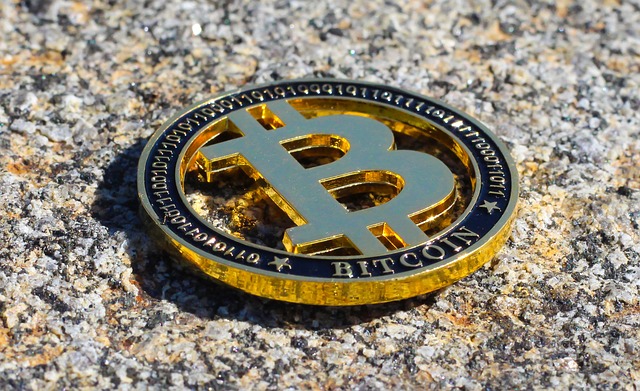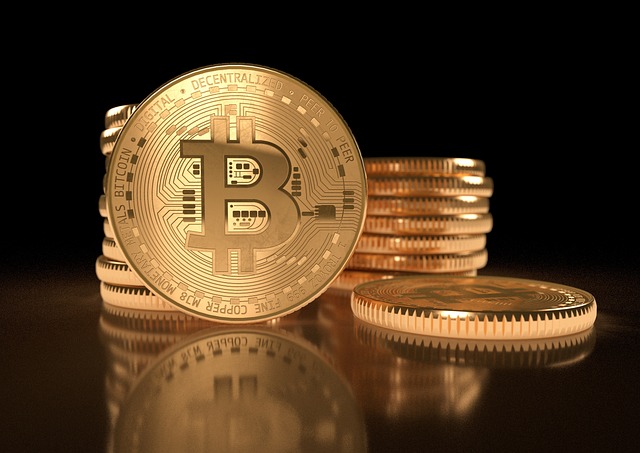Deconstructing DeFi: A Comprehensive Examination of Its Architecture
Deconstructing DeFi: A Comprehensive Examination of Its Architecture

What is DeFi and why is it transforming the financial industry?
Decentralized Finance, better known as DeFi, is revolutionizing the financial industry in ways that were unimaginable just a few years ago. At its core, DeFi refers to a digital system that allows individuals to engage in financial activities without the need for intermediaries such as banks or other traditional financial institutions. This newfound freedom to transact directly with one another has far-reaching implications for the way we interact with money and financial services.
One of the key reasons why DeFi is transforming the financial industry is its ability to provide financial services to the unbanked and underbanked populations around the world. With traditional financial systems often excluding these individuals due to various reasons, DeFi opens up a new world of opportunities.

Understanding the underlying technology behind DeFi platforms.
Decentralized Finance, or DeFi, is revolutionizing the financial industry by leveraging cutting-edge technology to create more accessible and equitable financial systems. At the heart of DeFi are blockchain networks, which serve as the underlying technology for these platforms. Blockchain technology enables the creation of decentralized applications (dApps) that operate on a peer-to-peer network, eliminating the need for intermediaries like banks. This decentralized approach ensures that no single entity has complete control over the network, promoting transparency and security in financial transactions.
One of the key components of DeFi platforms is the use of smart contracts. Smart contracts are self-executing agreements that automatically perform predefined actions once certain conditions are met. These contracts are coded on the blockchain, which means they cannot be altered once deployed, ensuring reliability and immutability. Smart contracts play a crucial role in DeFi as they enable various financial operations, such as lending, borrowing, and trading, to be executed without relying on centralized authorities. This not only reduces costs but also enhances efficiency and accessibility for users worldwide.
Exploring the various components that make up the architecture of DeFi.
One of the key components of the architecture of DeFi is the blockchain technology that underlies it. Blockchain essentially allows for a decentralized and transparent system where all transactions and activities are recorded and verified by multiple participants. This ensures the security and immutability of the data, as it is distributed across a network of computers rather than being stored in a single centralized database. The use of blockchain in DeFi platforms enables users to have control over their own funds and eliminates the need for intermediaries such as banks or brokers.
Another important component of DeFi architecture is the smart contracts that are used to facilitate various financial transactions. Smart contracts are self-executing contracts with the terms of the agreement directly written into code. They automatically execute transactions when certain predetermined conditions are met, removing the need for intermediaries and reducing the potential for fraud or manipulation. Smart contracts ensure the transparency and efficiency of transactions in DeFi applications, as they are executed without the need for human intervention and are visible to all participants on the blockchain.
The role of blockchain technology and its impact on decentralized finance.
Blockchain technology plays a crucial role in decentralized finance (DeFi) by providing the foundation for transparent and secure financial transactions. With blockchain, all transactions are recorded on a public ledger, ensuring transparency and accountability. Moreover, the decentralized nature of blockchain means that there is no central authority controlling the network, eliminating the need for intermediaries such as banks or financial institutions.
The impact of blockchain on DeFi goes beyond just transparency and decentralization. Blockchain technology enables the creation of smart contracts, which are self-executing contracts with predefined terms and conditions. These contracts automatically execute when certain conditions are met, removing the need for intermediaries and reducing the associated costs. As a result, DeFi platforms built on blockchain can offer users a range of financial services, such as lending, borrowing, and trading, in a more efficient and cost-effective manner.
• Blockchain technology ensures transparency and accountability in financial transactions through a public ledger.
• The decentralized nature of blockchain eliminates the need for intermediaries like banks or financial institutions.
• Smart contracts, enabled by blockchain, are self-executing contracts with predefined terms and conditions.
• Smart contracts automatically execute when certain conditions are met, reducing the need for intermediaries and lowering costs.
• DeFi platforms built on blockchain can offer users services such as lending, borrowing, and trading more efficiently and cost-effectively.
How smart contracts ensure security and transparency in DeFi applications.
Smart contracts are a crucial element of decentralized finance (DeFi) applications, ensuring both security and transparency for users. By utilizing blockchain technology, smart contracts eliminate the need for intermediaries and provide a secure and immutable record of transactions. These contracts are programmed to self-execute once the predefined conditions are met, eliminating the risk of fraud or manipulation.
The transparency of smart contracts in DeFi allows for increased accountability and reduces the reliance on trust. Since these contracts are stored on a public blockchain, anyone can view and verify the terms and conditions of a transaction. This transparency ensures that all parties involved can have confidence in the integrity of the process, making it more difficult for any malicious actors to manipulate the system. With smart contracts at the core of DeFi applications, users can be assured of the security and transparency of their financial transactions.
Unpacking the different types of decentralized applications (dApps) in the DeFi ecosystem.
Decentralized applications, commonly referred to as dApps, play a crucial role in the DeFi ecosystem by providing various financial services in a trustless and permissionless manner. These applications are designed to operate on blockchain networks, allowing users to interact with them without the need for intermediaries. One of the most prominent types of dApps in DeFi is decentralized lending platforms. These platforms enable individuals to lend and borrow digital assets without the involvement of traditional financial institutions. Users can leverage their crypto holdings as collateral to secure loans or earn interest by lending their assets to others.
Another type of dApp that has gained considerable popularity in DeFi is decentralized exchanges (DEXs). These platforms allow users to trade cryptocurrencies directly with each other, eliminating the need for a centralized intermediary or a trusted third party.

The importance of liquidity pools and decentralized exchanges in DeFi.
Liquidity pools and decentralized exchanges play a pivotal role in the world of DeFi, enabling users to seamlessly trade their digital assets. In traditional finance, liquidity refers to the ease of buying or selling an asset without impacting its price. However, in the decentralized finance ecosystem, achieving liquidity can be more challenging due to the absence of centralized intermediaries. This is where liquidity pools come into play, acting as a decentralized solution. Liquidity providers contribute their funds to these pools, effectively allowing users to trade between different digital assets. By incentivizing users to deposit their tokens, liquidity pools ensure that there are always enough funds available for trading. This mechanism significantly enhances the efficiency and accessibility of DeFi platforms, attracting more users and fostering a vibrant ecosystem.
Decentralized exchanges (DEXs), as the name suggests, provide a decentralized platform for users to trade their digital assets. These platforms facilitate peer-to-peer transactions without the need for intermediaries, enabling users to retain full control over their funds. Unlike centralized exchanges, which are susceptible to hacks or regulatory issues, DEXs offer increased security and transparency. Additionally, decentralized exchanges often offer a wider range of trading pairs, allowing users to access more diverse markets within the DeFi ecosystem. This not only enhances market efficiency but also promotes innovation and experimentation within the decentralized finance space. Overall, liquidity pools and decentralized exchanges are indispensable components of DeFi, providing the necessary infrastructure for secure, efficient, and accessible trading.
The challenges and potential risks associated with DeFi platforms.
DeFi platforms, while promising in their potential to revolutionize the financial industry, are not without their fair share of challenges and potential risks.

Alongside security concerns, another challenge faced by DeFi platforms is the lack of regulatory oversight. Unlike traditional financial institutions, these decentralized platforms operate outside the control of any central authority. While this allows for greater financial freedom and accessibility, it also leaves room for potential scams and fraudulent activities. Investors may find themselves unprotected in case of any mishaps, as there are no established legal frameworks to fall back on. This lack of regulatory clarity can deter some potential users and investors from fully embracing DeFi platforms.
Examining the benefits and drawbacks of decentralized governance in DeFi.
Decentralized governance is one of the key characteristics of the DeFi ecosystem, offering both advantages and disadvantages. One of the main benefits is the elimination of centralized control, which empowers users and allows for greater transparency. In a decentralized governance model, decision-making power is distributed among all participants, ensuring that no single entity has undue influence. This means that changes, upgrades, and modifications to the DeFi protocols are determined by a collective agreement, rather than being dictated by a centralized authority.
However, decentralized governance in DeFi also brings certain drawbacks. One of the main challenges is coordination and decision-making. With multiple stakeholders involved, reaching a consensus can be a complex and time-consuming process. Disagreements, conflicts of interest, and differing priorities among users can result in delays or even gridlocks in the decision-making process. Additionally, decentralized governance may also lead to certain inefficiencies, as it requires active participation from the community members in order to function effectively. This can be a barrier for users who are less engaged or lack the necessary knowledge to actively contribute to the decision-making process.
The future of DeFi: potential innovations and scalability solutions.
In the fast-paced world of decentralized finance (DeFi), innovation is the name of the game. With the increasing adoption and popularity of DeFi platforms, developers are constantly seeking new ways to improve scalability and address the challenges that arise. One potential innovation that holds promise is layer two solutions, such as sidechains and state channels. These solutions aim to alleviate congestion on the main Ethereum network by offloading some of the transaction processing to secondary networks. By doing so, they could significantly improve the speed and scalability of DeFi applications, enabling more users to participate without worrying about high gas fees or slow confirmation times.
Another area of potential innovation in DeFi lies in interoperability. Currently, most DeFi platforms operate within their own ecosystems, limiting the ability to fully utilize the benefits of cross-chain communication. However, with the emergence of projects like Polkadot and Cosmos, which aim to bridge different blockchain networks, we could see a future where DeFi applications can seamlessly interact with each other, regardless of the underlying blockchain infrastructure. This would not only enhance the overall liquidity and accessibility of DeFi, but also promote collaboration and innovation across multiple chains. The future of DeFi holds exciting possibilities, and as developers continue to push the boundaries of technological advancements, we can expect to witness even more innovative solutions that further propel the growth and functionality of decentralized finance.
What is DeFi and why is it transforming the financial industry?
DeFi, short for decentralized finance, is a new approach to finance that aims to remove intermediaries and create a more inclusive and accessible financial system. It utilizes blockchain technology to enable peer-to-peer transactions and smart contracts to automate processes. DeFi is transforming the financial industry by providing financial services to anyone with an internet connection, without the need for traditional banks or financial institutions.
Understanding the underlying technology behind DeFi platforms.
DeFi platforms are built on blockchain technology, which is a decentralized and transparent ledger. This technology ensures that all transactions and data are securely recorded and cannot be altered. It also enables the use of smart contracts, which are self-executing agreements with predefined rules. These smart contracts automate processes, such as lending, borrowing, or trading, without the need for intermediaries.
Exploring the various components that make up the architecture of DeFi.
The architecture of DeFi consists of various components, including decentralized applications (dApps), blockchain networks, smart contracts, and decentralized exchanges (DEXs). These components work together to enable peer-to-peer transactions, lending, borrowing, and other financial activities without the need for intermediaries.
The role of blockchain technology and its impact on decentralized finance.
Blockchain technology plays a crucial role in decentralized finance by providing a secure and transparent platform for transactions. It eliminates the need for intermediaries, reduces costs, and increases efficiency. Blockchain also enables global accessibility, allowing anyone with an internet connection to participate in DeFi applications.
How do smart contracts ensure security and transparency in DeFi applications?
Smart contracts ensure security and transparency in DeFi applications by automating processes and eliminating the need for intermediaries. They are coded with predefined rules and conditions, making transactions and agreements tamper-proof and transparent. Once deployed on the blockchain, smart contracts cannot be altered, providing a high level of security and trust.
Unpacking the different types of decentralized applications (dApps) in the DeFi ecosystem.
In the DeFi ecosystem, there are various types of decentralized applications (dApps) that cater to different financial needs. These include decentralized exchanges (DEXs), lending and borrowing platforms, stablecoin protocols, prediction markets, insurance platforms, and more. Each dApp offers unique features and services, providing users with a wide range of options for their financial activities.
Why are liquidity pools and decentralized exchanges important in DeFi?
Liquidity pools and decentralized exchanges (DEXs) are crucial components of DeFi as they provide liquidity for trading and financial activities. Liquidity pools allow users to contribute their assets to a pool, which is then used for decentralized trading. DEXs enable users to trade directly with each other without the need for intermediaries, ensuring transparency and reducing costs.
What are the challenges and potential risks associated with DeFi platforms?
While DeFi offers many advantages, it also comes with its challenges and risks. Some of the challenges include scalability issues, regulatory uncertainties, and potential security vulnerabilities. Additionally, the decentralized nature of DeFi makes it difficult to address disputes or recover lost funds. It’s important for users to understand these risks and exercise caution when participating in DeFi platforms.
What are the benefits and drawbacks of decentralized governance in DeFi?
Decentralized governance in DeFi allows participants to have a say in the decision-making process and the direction of the platform. It promotes transparency and avoids centralization of power. However, decentralized governance can also lead to slower decision-making processes and potential conflicts of interest. It requires active participation from the community to ensure effective governance.
What can we expect in the future of DeFi? Are there any potential innovations and scalability solutions?
The future of DeFi holds great potential for innovations and scalability solutions. One area of focus is improving scalability to handle the increasing number of users and transactions. Layer 2 solutions, such as sidechains and state channels, are being developed to alleviate congestion on the main blockchain. Additionally, new financial products and services, such as tokenized assets and decentralized identity solutions, are expected to emerge, further expanding the capabilities of DeFi.
Todays Featured Product:
Buy, exchange and grow your crypto securely with a Ledger hardware wallet, combined with the Ledger Live app. It’s never been easier to keep your crypto safe and accessible. Buy direct from Ledger.com and get todays Special Offers Here.




